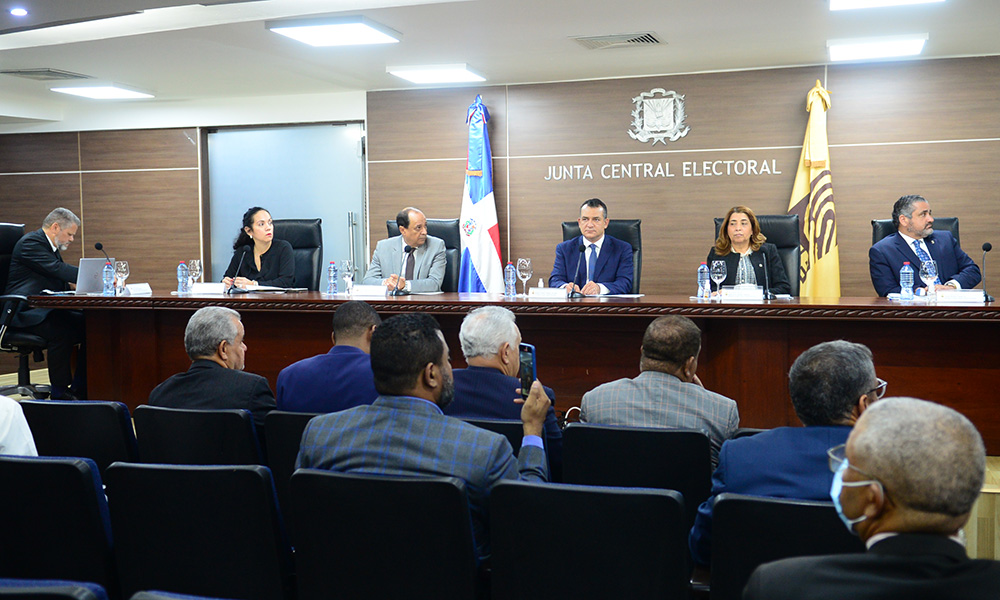The president of the Central Electoral Board (JCE) Román Andrés Jáquez Liranzo, said that an electoral reform is urgent “that gives the electoral bodies the claws and teeth so that they can bite those parties that in their calendar have advanced” their proselytizing activities to the date established by the Party Law.
He clarified that the electoral body does not have mechanisms by law to sanction political parties that start the pre-campaign at the wrong time, which according to the law, should start in 2023, specifically in the month of July.
He stressed that given the legal vacuum left by both the Political Parties Law and the Electoral Regime Law, in regulating the period prior to the pre-campaign, the Plenary of the Central Board called on the parties to “prudence” to when promoting their political aspirations.
He indicated that later, in October 2021, the JCE issued a statement in which it warned the party leaders what activities they could or could not carry out prior to the pre-campaign.
“It is useless for the system that the Central Electoral Board imposes any type of administrative sanction, if the procedure does not exist,” said Jáquez Liranzo.
He said that the JCE recently submitted to the political parties a draft regulation that creates the administrative procedure, executed by the Unit of Attention, Monitoring and Execution Mechanisms of Sanctions, which will allow to sanction the electoral administrative infractions established in Law 33 /18 and 15/19.
“Once we have this regulation that establishes the procedure, the due process, then the Central Electoral Board will be in constitutional conditions to be able to accept any type of complaints or ex officio, and take actions in this regard,” he pondered.
JCE proposes digitization
Román Andrés Jáquez Liranzo reported that a proposal to digitize the results in the 2024 elections is being discussed with the political parties.
“What this digitization of the results will allow is that the polling stations take you to that center, which will be the same precinct, the act cannot be printed and signed until it is square,” he explained. He indicated that once it is squared in the system, a record is printed, which will be signed by the delegates and members of the electoral college, then it will be scanned and the results are automatically digitized in the Board’s system.
The Plenary of the JCE hears challenges
The Plenary of the JCE yesterday held a public hearing with the parties to learn about the challenges to the appointments in the 58 Electoral Boards contemplated in resolution 11-2022. The PRM presented 17 challenges against the Electoral Boards, the PLD, 16, and the People’s Force, 12. The parties have five days to deposit their documents. After the deadline, the electoral body has eight days to present a decision.














